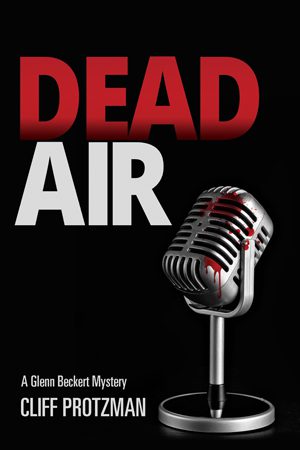

Cliff Protzman spent three decades in the world of banking and finance, a place where you have to be on your game and situated firmly in reality. These days, he’s retired and spending a lot more time in the world of fiction, where you can enjoy a lot more mystery and intrigue.
Protzman just finished his first book featuring private eye Glenn Beckert. Struggling to change his life after a divorce and losing his job, Beck’s investigation leads him to the financial and political powers of his beloved city of Pittsburgh.
In addition to his novel, the first in a projected series, Protzman writes short stories and non-fiction. His essay “Three Words,” about his relationship with his father and a baseball hero, was published in the book Unfinished Chapters. Protzman is a member of the Mystery Writers of America and of Pennwriters. He and his wife have six children and five grandchildren.
Q: Why switch from a business career to an author’s life?
A: It’s not as odd a change as you might think. The difference from a traditional business is the product being sold. The skills of time management, budgeting, and marketing are essential to a writer. The perception of a writer hunkered over a keyboard in solitude is passé. An author no longer turns over a book to a publisher and waits for the royalties to come in. There are close to a million books published each year, many self-published. The writer has to be a proactive marketer to stand out in a crowded field. The writer can hire a publicist or marketing manager, but that offers no guarantee of sales. The publicist is a valuable tool to open doors, but brand creation necessitates direct involvement by the novelist. Passive action by an author ensures only friends and family buy the book. Readers have to be motivated to follow the writer. A well-written story is the product of a professional approach to storytelling. An author must develop strategies and priorities. It would be nice to stay in my pajamas sipping coffee until noon, then write for a couple of hours and call it a day. Unfortunately, that work ethic rarely produces royalty checks. Writing allows me to create a unique and personal product. The book is open to reviews both good and bad. The reward comes the reviewer who states, “I look forward to reading more of his work.”
 Q: What did you learn writing this book?
Q: What did you learn writing this book?
A: We tell stories at a lunch gathering, a social event, or happy hour over a few beers. The first advice I received was just write. That’s what I did. I submitted the first several chapters to an editor, who pronounced it pure crap. I joined a writing group and began to attend writer’s conferences to learn the craft. The writer’s group was combination social and work environment. We discuss writing by sharing our works-in-process. A good group provides compliments and constructive criticism. I was introduced to the idiom, Show, don’t tell. Avoid telling a story. Describe the scene and use dialogue that is active, not passive. Use words to create a picture in the minds of the reader. I attended a writer’s session led by D. E. Johnson, a writer from Michigan, who wrote a series of historical mysteries set in early twentieth century Detroit. Johnson started the session with words I’ll never forget. “It’s not so hard to be writer. Your first sentence has to be the best you’ve ever written. Every sentence after that has to be better.” What a fantastic challenge. However, the art of writing is only a piece of the challenge to sell a book. Perhaps you write the Great American Novel. It means little if you can’t sell it to readers. The learning process includes understanding your market. Readers can be quirky. Some prefer a solid plot, engaging characters, or an intriguing location. As a writer, you have to realize that you can’t please everybody. Write what you like, there will be readers.
Q: Why a mystery?
A: All stories are mysteries. The reader engages to find out what will happen, how will it end? An example can be found in a romance novel. The reader identifies with the couple hoping they get together… or not. There is a conflict that intrudes on their romances, and the writer has to resolve that conflict for the better or worse. Wuthering Heights keeps the reader enthralled wondering if Heathcliff and Catherine will ever resolve their conflict. Even a non-fiction book can keep us on the edge. We read not only to find the author’s conclusion, but how he got there. If there was no mystery, why read? A murder mystery opens all facets of society. After all, murders happen in the best and worst of neighborhoods. This allows the author to explore an immense range of characters and locations. It has been said that all humans have murderous intents in our personalities. What a fantastic range of settings, plot and characters this opens.



